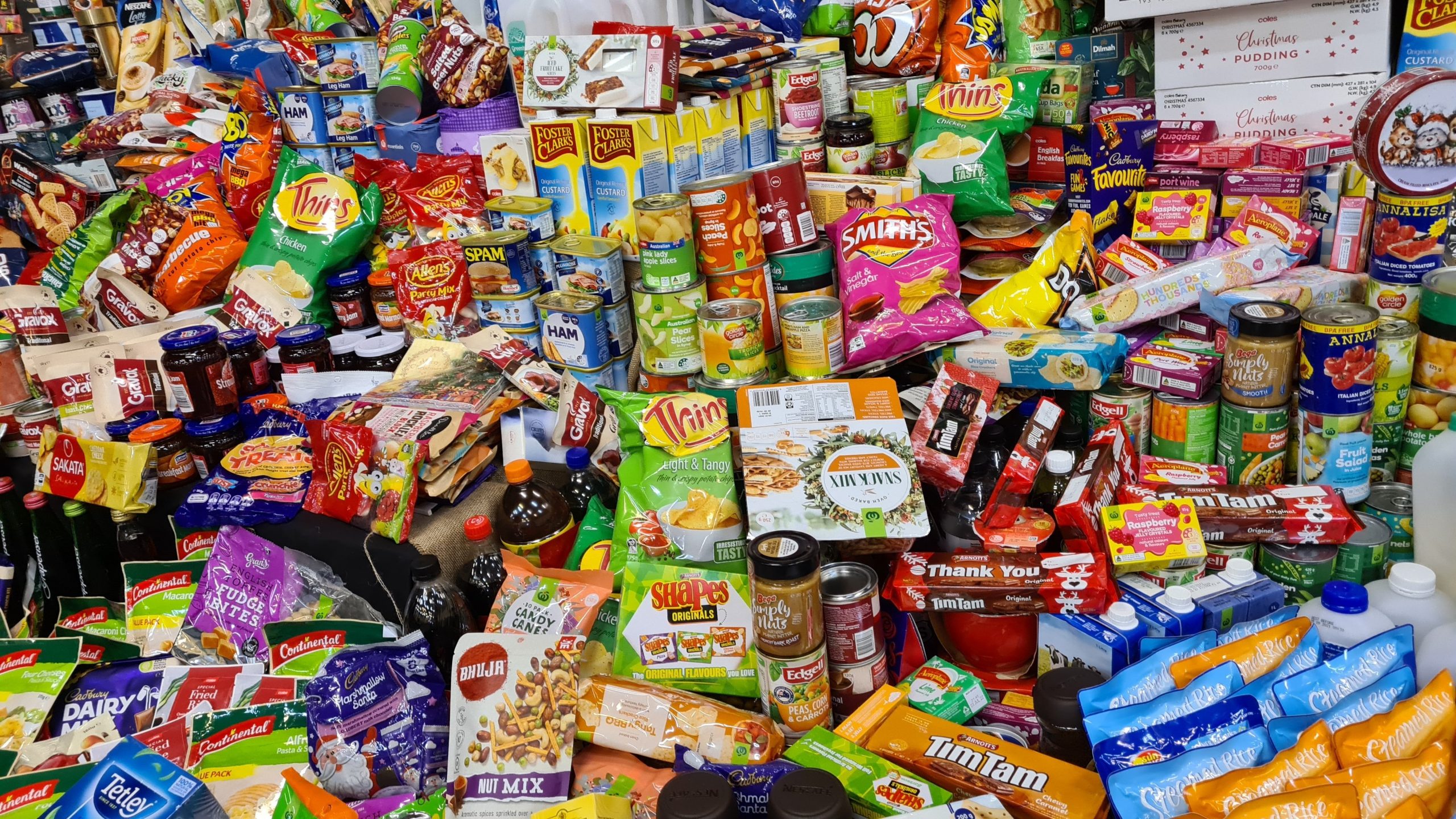A recent BBC study revealed a direct link between ultra-processed food and major health risks.
Ultra-processed foods (UPFs) or heated, pasteurised, canned and dried foods that are chemically produced in factories are connected with major health risks that are a lot more serious than weight gain, according to an experiment dedicated to BBC News.
Ultra-processed foods are products consumed by the vast majority of people in the world, such as soft drinks, chips, chocolate, sweets, ice-cream, sweetened breakfast cereals, packaged soups, chicken nuggets, hotdogs, fries and many more.
Dr. Chris van Tulleken conducted an experiment on himself for a month, where he ate highly processed food for a total of 30 days, and of course, it didn’t go well.
The experiment was part of the British doctor’s documentary “What Do We Feed Our Kids?” that aired on BBC last month. The documentary follows Dr. Tulleken, who went on a diet made up of 80% of ultra-processed food for four weeks to investigate the impact of such food consumption on human health and wellbeing.
Throughout the experiment, Dr. Tulleken experienced some unpleasant symptoms and as expected, his health began deteriorating.
In one month of unhealthy eating, he developed heartburn, lethargy, constipation, haemorrhoids, sleep deprivation and weight gain of 7 kilograms.
“I felt 10 years older,” he said, adding that he didn’t realise “it was all about food until he stopped following the diet.”
The diet Dr. Tulleken followed, consisted of “many foods that are calorie (energy) dense and likely to be high in salt, sugar and saturated fat such as fried chicken, meat feast pizza and chocolate pudding with very few fruits and vegetables and likely very little fibre. Thus, it is not surprising that he put on weight and did not feel well,” the British Nutrition Foundation stated.
Read also: Qatar goes vegan? Plant-based ‘Eat Just’ secures $200 million in Doha-led funding
“Global dietary guidance already advises us to eat less of these types of food as we know that high consumption has a detrimental impact on health. In other words – as such a dietary pattern is unlikely to provide all the vitamins, minerals and fibre we need to be healthy, and would exceed saturated fat, sugar and salt recommendations, this is not what any nutrition or health professional would recommend,” it added.
Some ‘healthy’ food appears to be unhealthy
Among the revelations of the study was the fact that ultra-processed food is not just limited to fast food or snacks. In fact, many products that are recommended for ‘healthy diets’ fall under the ultra-processed food category.
The foundation pointed out that “ultra-processed definition also includes foods that can be included part of a healthy diet such as wholemeal sliced bread, low fat, lower sugar yogurts, wholegrain breakfast cereals, fish fingers, or baked beans that can contribute important nutrients to the diet,” noting that many people do not acknowledge this fact.
Scientific evidence
Along with Dr. Tulleken’s experiment, a study was conducted to provide scientific reasoning for all health effects experienced by the doctor within the month.
“It showed that, compared to those on a low-ultra-processed diet, those with a high intake ended up eating more than 500 calories per day,” according to BBC.
It also found that such a diet increases the hunger hormone which stimulates appetite and decreases the hormone that makes individuals feel full, which explains why fast food lovers tend to gain weight faster and suffer from obesity in some cases.
However, this is just one side-effect of following an unhealthy ultra-processed diet.
Read also: Made in Qatar: More local product outlets sprout this season
“Other previous studies have shown a link between prolonged consumption of these foods and a higher risk of heart disease, obesity, type 2 diabetes, sone types of cancer, and even depression,” BBC reported.
The study also found that such kinds of food impact eating habit, noting people tend to eat much faster than those who follow a low-ultra-processed diet.
Some studies link eating slowly with feeling full, but ultra-processed foods “are very easy to chew and swallow,” said Dr. Tulleken.
Food manipulation and mind control
Food and Nutrition scientist Emma Beckett explained why people crave certain types of food, which in most cases are ultra-processed foods.
“These products are often designed to reach our ‘satisfaction points’ i.e. the ideal level of salt, fat and/or sugar; and to be just below the ‘specific sensory satiety’ point which is beyond sufficiency. We don’t want more after that.”
In other words, tasty fast food and our favourite snacks are produced in a way that messes with our minds so we crave for more. High consumption of such kinds of food could potentially lead to an addiction.
Dr. Tulleken learned that “eating ultra-processed food is simply something my brain comes up with, without my desire.”
According to the BBC report scans of Dr Tulleken’s brain activity showed how “regions responsible for reward were linked to regions that drive repetitive, automatic behaviour.” This means his brain became addicted to ultra-processed foods.
“One of the side effects of delicious food is that it’s very hard to stop,” the doctor admitted.
These kinds of food can trigger a mechanism referred to as the “optimism bias”, Dr. Beckett added.
“The satisfaction from eating these foods is achieved immediately, but the negative effects take time to occur, which makes it easy for us to believe that we have enough time to change our eating habits later,” she explained.
In addition, the media is another main player in the mind game. Marketing plays a significant role in controlling and directing consumer behaviour – it has the power to persuade consumers to purchase a product they never wanted or needed.
“Many of our food choices are unconscious and by habit, we don’t always think about what is healthy, and the more we see these foods in the store, in the media and in advertisements, the more likely we are to buy them,” Dr. Beckett noted.
Why do we eat ultra-processed foods?
Not all processed foods are necessarily unhealthy or pose a risk to our health, Dr. Beckett pointed out.
“Processed foods include some really important and healthy foods, such as canned vegetables, pasta, rice, bread and high-fibre breakfast cereals,” she said.
“But above all, let’s not forget that food is much greater than the sum of its components. Food is more than just a necessity.
“It’s part of our satisfaction, part of our culture, our community, our social connection, and so much more.
“What we really need is to help people balance happiness and health,” she concluded.







